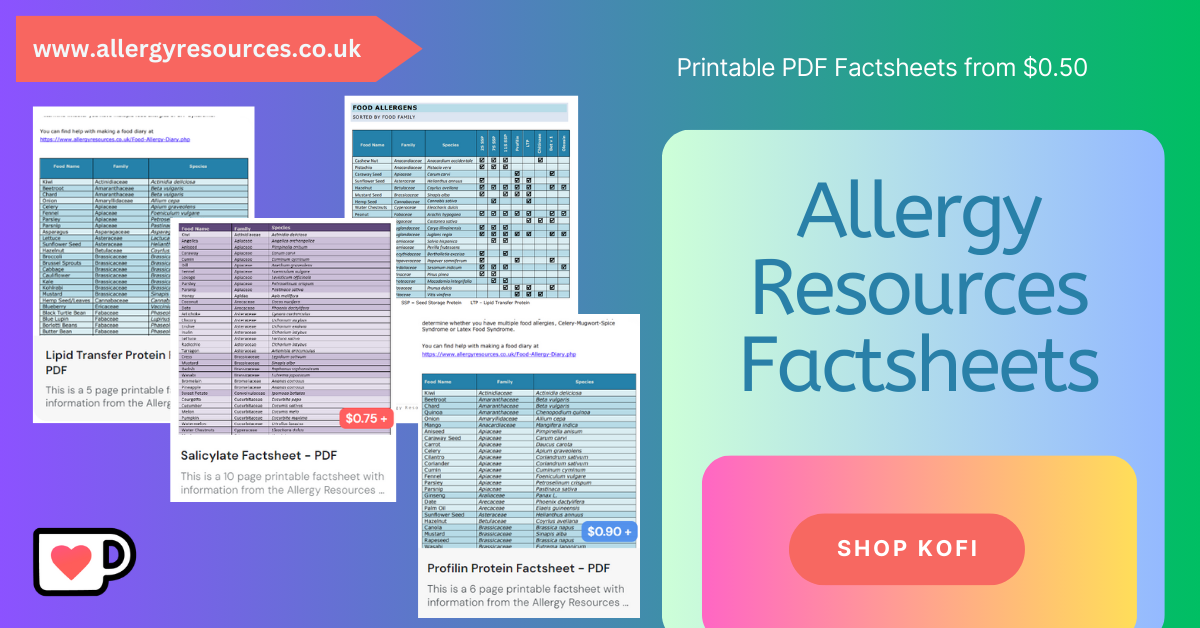
GINKGO BILOBA ALLERGY
Key Allergens
The fruit and nuts of the plant contain ginkgolic acid, which can cause contact allergic dermatitis.
It also contains a ginkgotoxin, 4′-O-methylpyridoxine, which has been linked to a Vitamin B6 deficiency. As the toxin is structurally similar to vitamin B6 it interferes with biosynthesis, metabolism and function of vitamin B6 in the body and has been known to cause seizures and food poisoning type symptoms.
Pollen from the ginkgo biloba is a common trigger for allergic rhinitis.
Food Intolerances

When taken in small doses ginkgo biloba is considered to be a low FODMAP food. FODMAP stands for Fermentable oligosaccharides, disaccharides, monosaccharides and polyols. Foods high in FODMAPs can cause symptoms of food intolerance, affecting the gastro intestinal system and this can be mistaken for a true IgE food allergy.
You can read more about Food Intolerances on the dedicated Food Intolerance Page.
Associated Syndromes
Cross Reactivity
You can always find the most up to date information on the Cross Reactivity Tool.
Resources
Websites
Science Direct - Ginkgo Biloba
Articles and Journals
Microscopical, phytochemical, and LC/MS analysis of Ginkgo biloba leaves, 2024
A comprehensive review of ginkgotoxin and ginkgotoxin-5′-glucoside in Ginkgo biloba L. seeds, 2023
Natural Allergens and Herbal Remedies Possessing Antiallergic activity, 2023
Pharmacological Activities of Ginkgolic Acids in Relation to Autophagy, 2022
Food Poisoning by Ginkgo Seeds through Vitamin B6 Depletion, 2019
Ginkgotoxin Induced Seizure Caused by Vitamin B6 Deficiency, 2015
Identification and Purification of an Allergic Glycoprotein from Ginkgo biloba Kernel, 2011
IgE immune response to Ginkgo biloba pollen, 2000